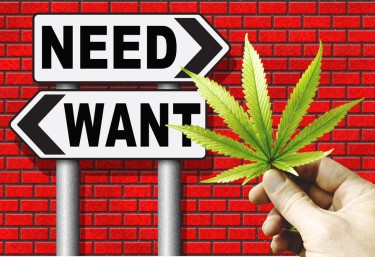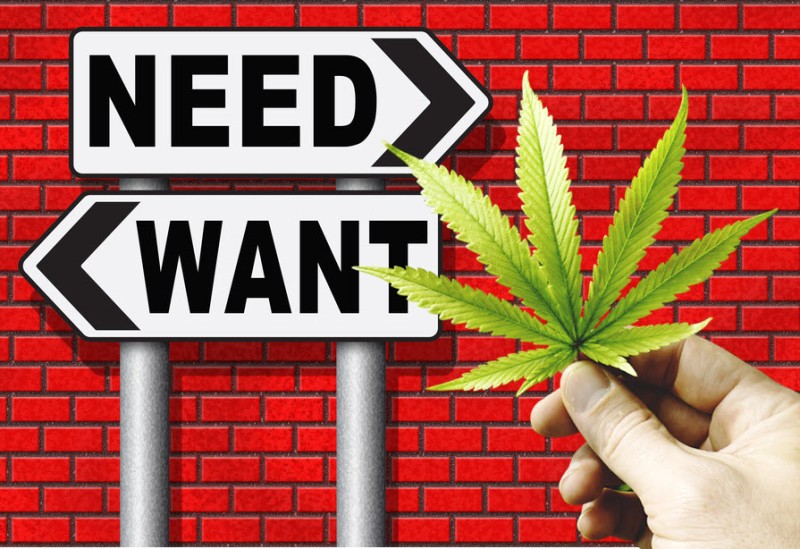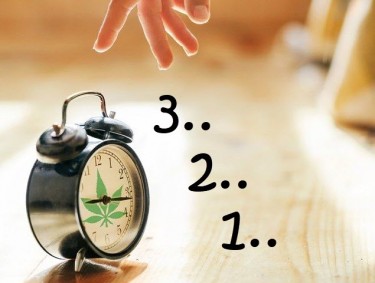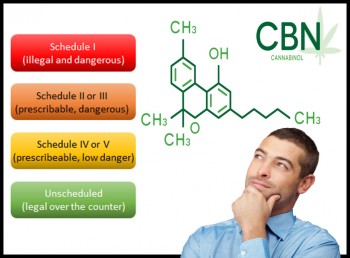
Science Discovers Tolerance in a Groundbreaking Study
Sometimes, it fascinates me how research and discovery works. Picture this: you ask a cannabis user how they drive under the influence of cannabis, and they casually reply, "Fine." To a non-cannabis user, this response is akin to admitting you juggle chainsaws while unicycling across a tightrope – blindfolded. "Impaired!" they cry, clutching their pearls and fainting dramatically onto the nearest fainting couch.
But here's the kicker – that seasoned cannabis connoisseur might actually be correct in their nonchalant "fine" assessment. You see, they've developed this magical thing called "tolerance." It's a concept so revolutionary, so mind-blowing, that it took a team of intrepid scientists armed with clipboards and an abundance of government funding to finally uncover this elusive phenomenon.
Today, we're diving deep into a recent study that has sent shockwaves through the scientific community. Brace yourselves for this earth-shattering revelation: people who use cannabis regularly might actually build up a tolerance to its effects! I know, I know – try to contain your gasps of astonishment.
This groundbreaking research has uncovered what every college student, musician, and that one cousin everyone has known for millennia. But fear not, for now we have the stamp of scientific approval to validate what cannabis users have been shouting from the rooftops (or more likely, mumbling from their couches) for ages.
So, dear readers, I invite you to join me on this journey of discovery. Sit back, relax, and if you're so inclined, pack a bowl. Together, we'll explore the latest findings that prove what we've all known all along – tolerance is not just a virtue, it's a scientifically verified phenomenon! T-Breaks, breaks from THC, are a well known exercise in the stoner community.
As we delve into the details of this study, prepare to have your mind blown by the sheer audacity of researchers spending time and resources to confirm that, yes, doing something repeatedly might make you better at it. Who would have thought?
Breaking the grounds
Alright, let's dive into this groundbreaking study with all the seriousness it deserves - which is to say, none at all.
Our intrepid researchers, clearly in need of a hobby, recruited 86 adults and divided them into three groups: daily users, occasional users, and non-users. One can only imagine the rigorous selection process: "Do you smoke weed? How often? Can you count to potato?"
The participants were then subjected to a series of tests that would make a kindergartener roll their eyes. Reaction time? Check. Decision-making? You bet. Working memory? Absolutely. It's as if the researchers raided a bag of "My First Science Experiment" kits and called it a day.
Lo and behold, the results were shocking - to absolutely no one who has ever attended a Phish concert. Daily users showed little to no impairment in reaction time after smoking. Cue the collective gasp from the scientific community and the collective "duh" from every long-term stoner.
But wait, there's more! The occasional users, bless their hearts, did show slower reaction times and poorer memory performance. It's almost as if... now bear with me here... using something regularly makes you better at functioning while using it. Revolutionary!
The study also found that daily users took longer to complete a task post-cannabis use but improved their accuracy. This phenomenon, known to cannabis users as "dude, I'm like, really focused right now," was labeled by researchers as "compensatory cautiousness." I'm sure the daily users appreciated having their snail-like pace dignified with such a fancy term.
Perhaps the most earth-shattering finding was that daily users didn't exhibit significant changes in their working memory performance after smoking. Who would have thought that doing something every day might lead to adaptation? Certainly not the millions of coffee drinkers who can function only after their third cup.
The implications of this study are far-reaching. For one, it suggests that maybe, just maybe, we shouldn't judge someone's impairment based solely on whether they've consumed cannabis. It's almost as if... individual tolerance levels might vary? Mind. Blown.
But fear not, concerned citizens! The researchers assure us they're working tirelessly to develop "objective tools" to detect cannabis impairment. Because clearly, what the world needs now is another way to hassle responsible adults about their personal choices.
In conclusion, this study has proven beyond a shadow of a doubt what every seasoned stoner has known since time immemorial: practice makes perfect, even when it comes to cannabis consumption.
So the next time someone questions your ability to function after a toke, just tell them you're not high - you're engaging in "compensatory cautiousness" and "tolerance development." It's science!
Let’s not be dumb about it
Alright, fellow cannabis enthusiasts, it's time for a moment of real talk. While we've been chuckling about scientists "discovering" tolerance, let's not forget the importance of responsible consumption. Yes, our tolerance increases with long-term use, but let's not kid ourselves – we're not suddenly immune to the effects of cannabis.
This isn't a challenge, folks. I'm not suggesting you go out and devour a plate of edibles before operating a crane or performing brain surgery. That's just asking for trouble, and probably a viral video you'd rather not star in.
The real value of this study lies in educating non-users. It's a wake-up call to those who imagine every cannabis user as a giggling, red-eyed caricature incapable of stringing two thoughts together. Surprise! Chronic users aren't necessarily as impaired as the "Reefer Madness" crowd might believe.
Let's draw a parallel with our old friend alcohol. If you're like me and rarely drink, three beers might have you dancing on tables and declaring your undying love for everyone in the room. Meanwhile, your buddy who drinks more regularly might down a six-pack and only feel a slight buzz. It's the same principle with cannabis.
Here's where it gets interesting, though. Cannabis impairment is generally less severe than alcohol when it comes to motor functions. So even if a regular cannabis user consumes more than the average person, their impairment doesn't skyrocket in the same way it would with alcohol. It's not a free pass, but it's food for thought.
Now, let's be clear: regardless of tolerance, it's always best to be sober when doing anything that could endanger others. Yes, we might be able to drive while stoned, but that doesn't mean we should. It's not just about our own safety, but the safety of everyone else on the road.
However – and this is a big however – this study should inform our traffic laws. The mere presence of THC in someone's system doesn't necessarily indicate impairment, especially for regular users. It's high time (pun intended) that our laws reflect this reality instead of treating cannabis like it's the devil's lettuce.
So, let's hope this study helps shape more sensible laws. Laws that recognize the nuances of cannabis use and don't unfairly penalize responsible, long-term users who aren't actually impaired.
In the end, it's about balance.
We can celebrate our hard-earned tolerance while still acknowledging that cannabis does have effects. We can push for more reasonable laws while still advocating for responsible use. And most importantly, we can continue enjoying our herb while using our cannabis-enhanced creativity to come up with even more ridiculous names for it. Jazz cabbage, anyone?






